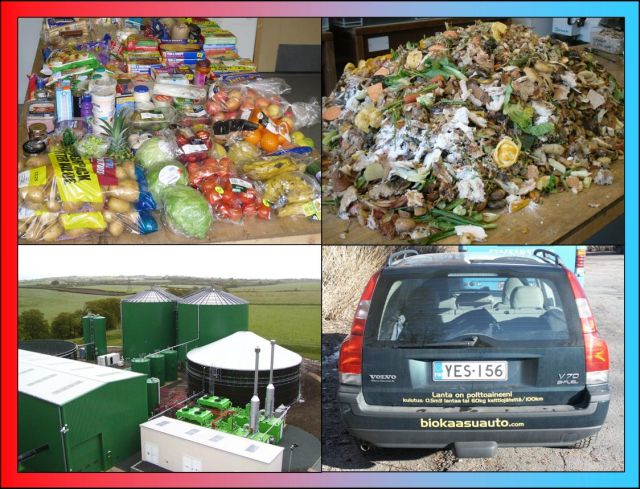|
To evaluate the efficiency
and yield of source segregated food waste
collection schemes from domestic properties,
restaurant and catering facilities, food
markets and food manufacture.
|
|
To determine the energy and
carbon footprint of the biowaste-to-energy
process including collection, transport,
treatment and final product use, considering
both direct and indirect inputs. This
provides the basis for a full life cycle
assessment of the environmental impacts and
benefits of this technology. |
|
To optimise pre-treatment of
the source segregated waste stream for
biogas production and biosecurity of the
residual product by development and
trialling of novel cell disruption and
autoclaving techniques. |
|
To balance the digestion
process using interventions to improve the
carbon to nitrogen ratio for optimal
volumetric biogas productivity and added
value of the digestate product. |
|
To gain a deeper
understanding of the interaction of
fundamental chemical and microbiological
factors affecting the potential for energy
gain from the substrate, and to convert this
into practical operational protocols for
stable and effective digestion of
high-nitrogen wastes at loading rates that
allow maximum volumetric biogas production. |
|
To achieve a mass and energy
balance around two full-scale digesters
treating food waste, one at mesophilic and
one at thermophilic temperature, which will
act as a benchmark for industry in the drive
for widespread implementation of the process
at commercial scale. |
|
To further develop low-cost
small-scale biogas upgrading technologies
and storage systems for application in
transportation and local low-pressure
distribution systems. |
|
To estimate the potential for
small-scale biogas upgrading in local
transportation in the EU and in India. |
|
To evaluate the
appropriateness of scale of digestion and
end-use energy conversion technologies, with
particular reference to matching public and
private community needs. |
To
evaluate the potential for food waste
digestion as a second generation biofuel
source across the EU in terms of energy
yield, environmental benefit and end user
requirements.
|
 |



